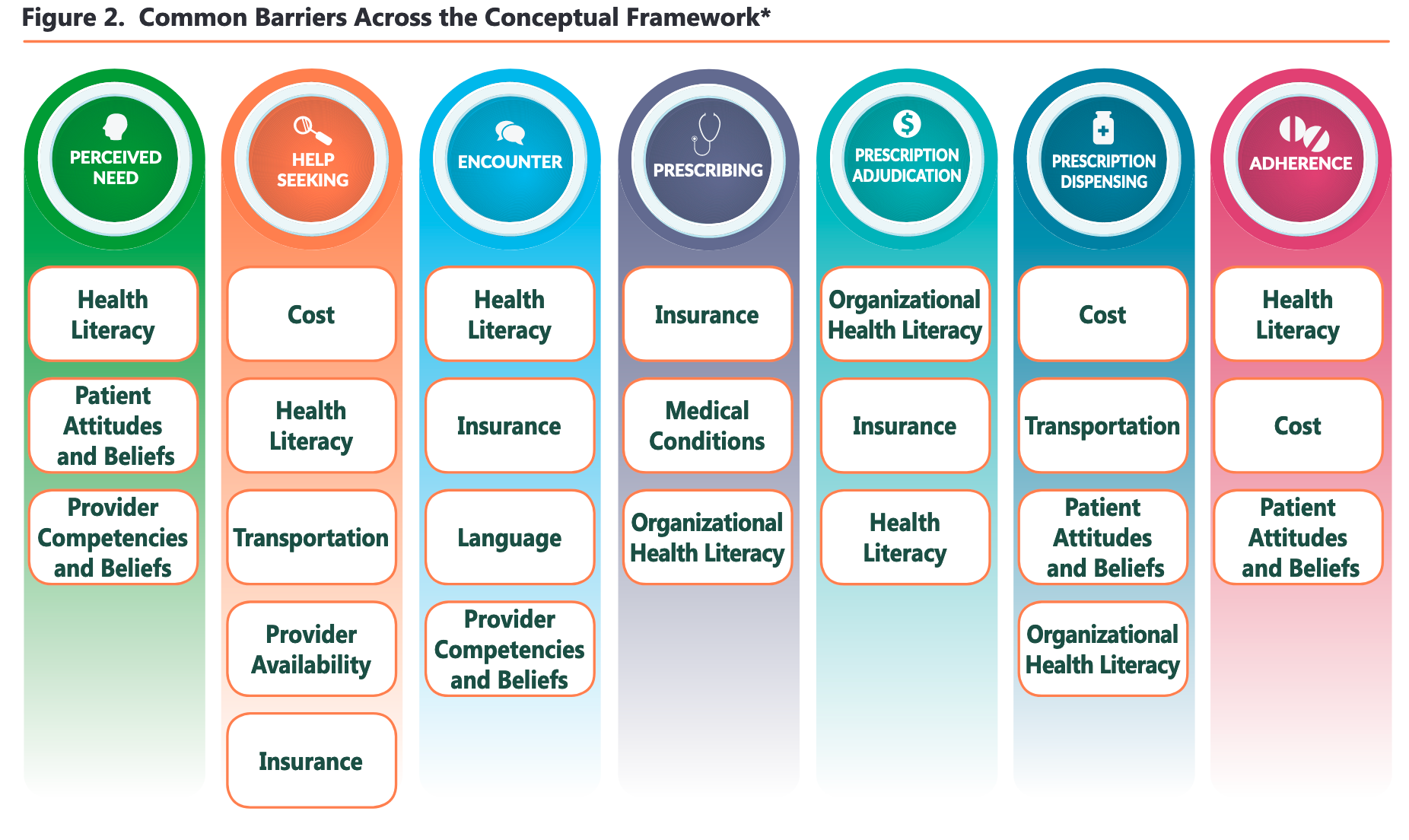Project aims to identify barriers to cancer drug access
A University of Rhode Island College of Pharmacy researcher has received a research grant to address barriers patients face in accessing needed medications for cancer. The $74,556 grant is funded by the Pharmacy Quality Alliance and the National Pharmaceutical Council.
Assistant Professor of Pharmacy Practice Ami Vyas will lead a study to identify significant patient access barriers and facilitators of adherence with oral anticancer  medications. The study will examine patient out-of-pocket costs, socioeconomic characteristics, clinical factors and subsequent health outcomes. It will leverage the recent alliance and council framework that defines the patient journey to medication access. The framework also identifies quality measurement gaps that could address the financial and non-financial factors that stand between patients and the medications they need.
medications. The study will examine patient out-of-pocket costs, socioeconomic characteristics, clinical factors and subsequent health outcomes. It will leverage the recent alliance and council framework that defines the patient journey to medication access. The framework also identifies quality measurement gaps that could address the financial and non-financial factors that stand between patients and the medications they need.
Higher out-of-pocket costs for oral anticancer medications can lead to prescription abandonment, delayed initiation and other forms of nonadherence, Vyas said, potentially leading to worsening conditions.
“Our project will determine the association between patient out-of-pocket costs of oral anticancer medications and treatment adherence among adult cancer patients in the U.S., and will also determine how adherence impacts patient health outcomes,” Vyas said. “Our research will provide crucial evidence-based information for several stakeholders to develop and implement approaches aimed at improving patient access to oral anticancer medications.”
Vyas’ 12-month research project begins this month. Findings are expected to be presented at a meeting of the Pharmacy Quality Alliance in 2021.
“Ideally, this research will give us a deeper understanding of how we can address the barriers patients face not only in accessing medications, but also in maintaining their overall health,” said Kimberly Westrich, National Pharmaceutical Council vice president of health research services. “The pandemic and spotlight on racial injustice have further exposed the major impact that socioeconomic factors have on health outcomes and that we need to heighten our efforts to address those issues. We’re pleased that our work with the alliance, and this project will aid those efforts.”

